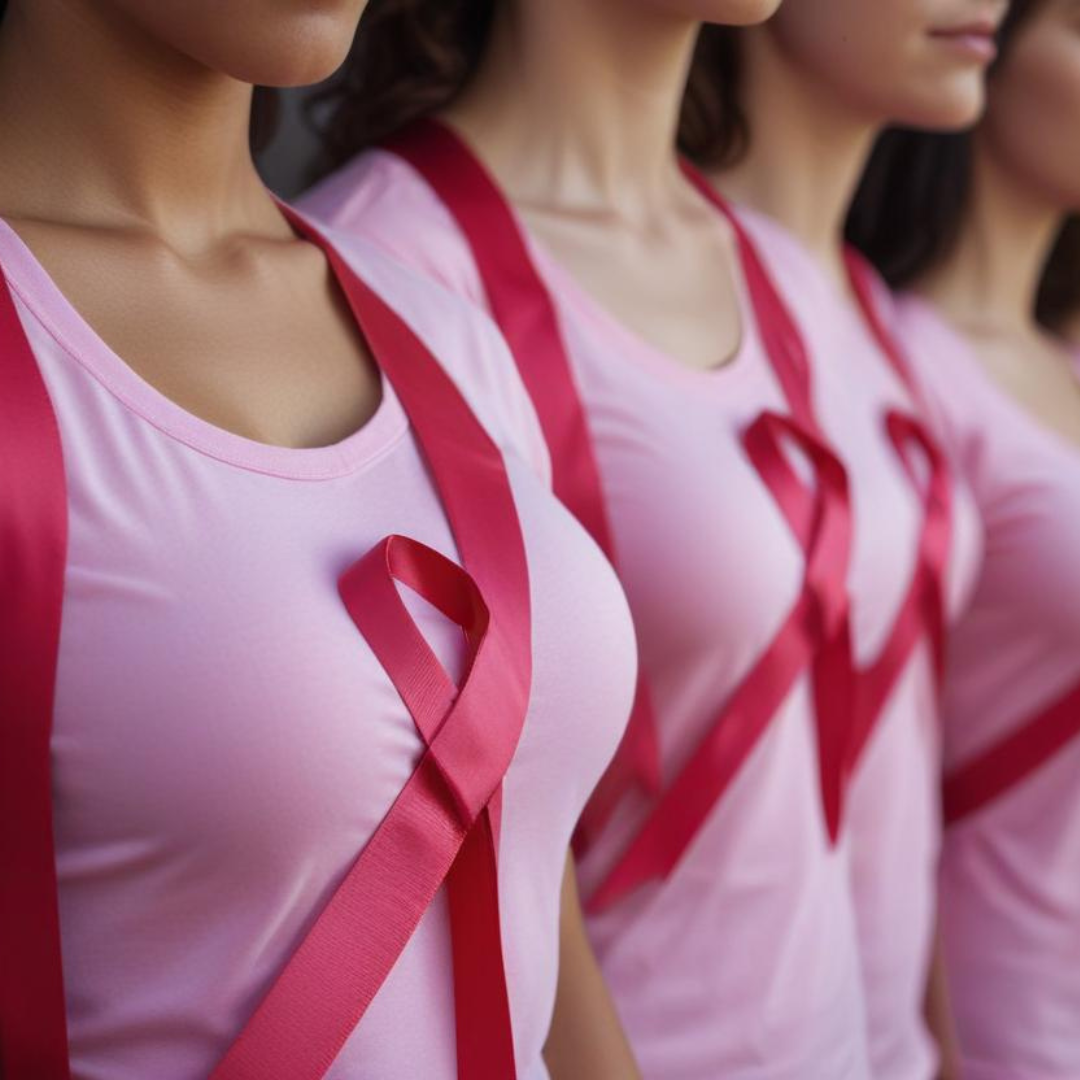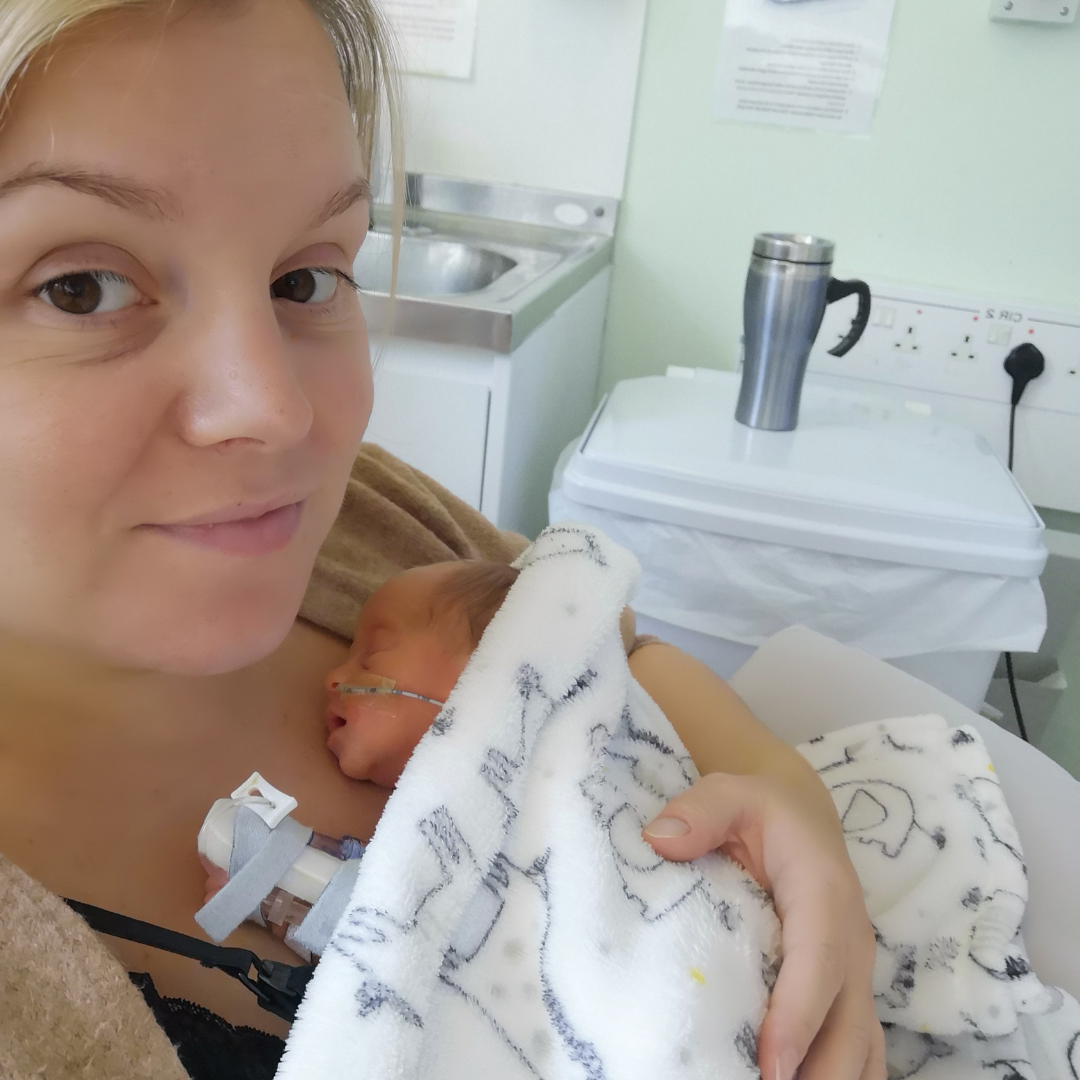Breastfeeding is a profound act of nurturing, creating a bond between mother and child while offering a host of health benefits for both. However, its significance goes beyond infant nutrition—breastfeeding also plays a key role in reducing the risk of breast cancer. In this blog, we explore the links between breastfeeding and breast cancer prevention, offer guidance on breast self-checks, and provide empowering advice for breastfeeding mothers.

1. Breastfeeding and Breast Cancer: The Statistics
Breastfeeding can be an incredibly effective measure in lowering the risk of breast cancer. According to research, breastfeeding reduces the risk of breast cancer by approximately 4% for every 12 months that a woman breastfeeds . This is a powerful statistic, showing that the longer you breastfeed, the more you protect yourself.
Unfortunately, breastfeeding rates in the UK are among the lowest globally, partly due to a lack of widespread breastfeeding experience and support. An estimated 4.7% of breast cancer cases in the UK are directly linked to women not breastfeeding . If more women were supported and encouraged to breastfeed, we could potentially reduce these statistics significantly.
2. Why Breastfeeding Offers Protection
The protective effects of breastfeeding against breast cancer arise from a combination of biological and hormonal factors:
-
Hormonal Regulation: Breastfeeding suppresses the body's production of estrogen, a hormone associated with breast cancer development. Lower estrogen levels during breastfeeding may reduce the risk of abnormal cell growth in breast tissue.
-
Breast Tissue Renewal: Breastfeeding also encourages the shedding of breast tissue. This process may help remove cells with potential DNA damage, lowering the risk of cancerous cell development.
-
Reduced Ovulation: Breastfeeding often delays the return of a woman’s menstrual cycle, reducing the number of lifetime ovulations and exposure to estrogen fluctuations, which can contribute to ovarian and breast cancer.
3. Breastfeeding and Early Detection of Breast Cancer
In addition to its preventative benefits, breastfeeding can also make women more aware of their breast health. While breastfeeding, many women become more familiar with the natural changes in their breast tissue. This heightened awareness can help women notice any unusual lumps, pain, or other changes that could be early signs of breast cancer .
Breastfeeding women may be more likely to notice potential warning signs such as a persistent lump, localised pain, or a change in breast texture. This early detection is key in ensuring that breast cancer is caught at a stage when it is more treatable.
4. Breastfeeding Beyond Six Months: Maximising Benefits
Breastfeeding for an extended period can further increase the protective benefits against cancer. The longer you breastfeed, the more protection you receive—not only against breast cancer but also against ovarian cancer. According to research from the MD Anderson Cancer Center, breastfeeding for six months or more offers significant protection against these cancers .
This protection continues to increase the longer breastfeeding is maintained, making extended breastfeeding beneficial for both mother and child.
5. How to Check Your Breasts While Breastfeeding

Regular breast checks are essential, whether you’re breastfeeding or not. Being proactive about your breast health is crucial, and here are some steps for checking your breasts while breastfeeding:
-
Step 1: Use a Mirror: Stand in front of a mirror with your arms by your sides and look for any visible changes in your breasts, such as dimpling, redness, or swelling.
-
Step 2: Check for Lumps: Using the pads of your fingers, feel your breasts in a circular motion, covering all areas from your collarbone to your underarm. Pay attention to any new lumps, thickened areas, or changes in breast texture.
-
Step 3: Look for Pain: Take note of any pain or tenderness that doesn’t seem related to breastfeeding or engorgement. If you experience persistent pain, it’s worth seeking medical advice.
-
Step 4: Nipple Discharge: If you notice any discharge that is not related to breastfeeding (such as blood or clear fluid), consult your doctor as soon as possible.
If you ever feel something unusual or concerning, don’t hesitate to seek professional advice. Early detection can be life-saving, and there’s no harm in being cautious.
6. Empowering Women Through Knowledge and Support
At Pippeta, we believe in empowering women through education, support, and community. Breastfeeding is a journey, and every mother deserves the guidance and resources needed to make informed decisions about her health and her baby’s well-being. By raising awareness of the links between breastfeeding and breast cancer, we aim to create a culture that supports breastfeeding mothers and promotes early breast cancer detection.
Let’s Work Together to Reduce Breast Cancer Risk
By supporting breastfeeding and educating women about the health benefits, we can make strides toward reducing the number of breast cancer cases. Whether you’re currently breastfeeding or considering it, remember that each day you continue on this journey is a step toward a healthier future—for both you and your baby.
Donate to our fundraiser
Breast Cancer Now's wear it pink day is one of the biggest fundraising events in the UK. Taking place in October during Breast Cancer Awareness Month, thousands of amazing people will wear it pink in their communities, schools or workplaces, to help make life-changing breast cancer research and support happen. Here at Pippeta we will be taking part in this and raising money around our local area and at Pippeta HQ. You can help too by donating here.
Final Thoughts
Breastfeeding is more than just feeding—it’s an investment in both short-term and long-term health. From reducing the risk of breast cancer to fostering early detection, breastfeeding is a powerful tool for women everywhere. By checking your breasts regularly and maintaining awareness of your body, you can take control of your health and empower yourself with knowledge.
If you found this article helpful, please share it with your friends and fellow mums. Let’s continue to build a supportive community around breastfeeding and breast health!
Sources:
- Britta Stordal Research on Breastfeeding and Breast Cancer: NIH Source
- MD Anderson on Breastfeeding and Cancer Prevention: MD Anderson Article
*The information on the Pippeta website, including articles, images, and other content, is provided for general informational purposes only. It is not intended as a substitute for professional medical advice, diagnosis, or treatment. We recommend consulting with a qualified healthcare provider for any medical concerns or questions regarding you or your baby’s health. Do not delay or ignore professional medical advice based on the information you find on this site.















Leave a comment
This site is protected by hCaptcha and the hCaptcha Privacy Policy and Terms of Service apply.